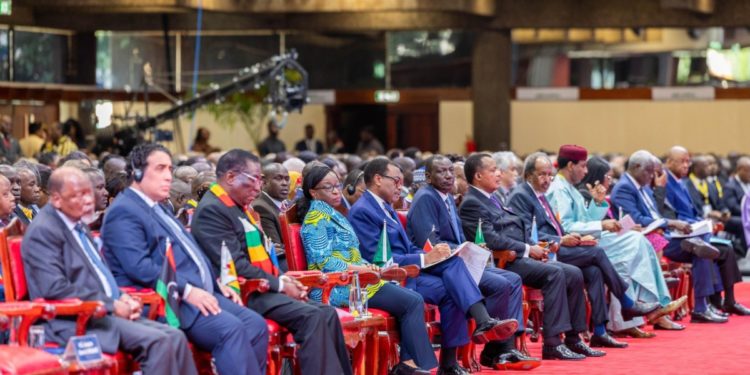President William Ruto has issued a clarion call for overhauling the international financial architecture, arguing that the current system hamstrings Africa’s development by restricting access to affordable financing and failing to account for climate vulnerabilities.
In an address at the opening of the African Development Bank’s (AfDB) 59th annual meetings in Nairobi, Ruto said the antiquated global rules perpetuate an “unjust financial architecture” that loads African nations with unsustainably high debt burdens.
“We routinely borrow from international markets at rates far above those paid by the rest of the world, often up to 8 to 10 times more,” Ruto told delegates. “These rates are said to factor in an arbitrary risk profile that is notably not applied when considering mineral extraction, even in areas of active conflict.”
He insisted that Africa is “neither seeking handouts nor asking for charity” but merely a level playing field to mobilize affordable capital and catalyze the continent’s immense economic potential.
“We are a continent of sovereign people who aspire to grow in a just multilateral system and access development financing on fair terms,” he said.
Ruto argued the debt crises ravaging many African economies directly stem from this skewed financial system, diverting scarce resources from investing in resilience, sustainable growth and opportunities for the burgeoning youth population.
Moreover, he emphasized that climate change – to which Africa contributes minimally but bears the brunt – poses an existential threat by diminishing fiscal revenues and escalating disaster relief costs. This vicious cycle perpetually undermines economic advancement.
“Climate change and sovereign debt are now firmly interconnected, trapping governments where increasing losses and damage from climate impacts lead to rising costs of mobilizing resources for public investments,” Ruto warned.
The president urged reforms integrating climate vulnerabilities into global financial frameworks while endorsing proposals to boost the AfDB’s lending firepower, including a $25 billion replenishment of the African Development Fund and re-channeling Special Drawing Rights through the bank.
“A better, more responsive, and fairer international development financial architecture is urgently needed, and time is of the essence,” Ruto implored.
His impassioned rhetoric struck a chord across the continent grappling with rising debt distress, limited fiscal space for climate adaptation, and the lingering setbacks from pandemics, conflicts and weather calamities.












